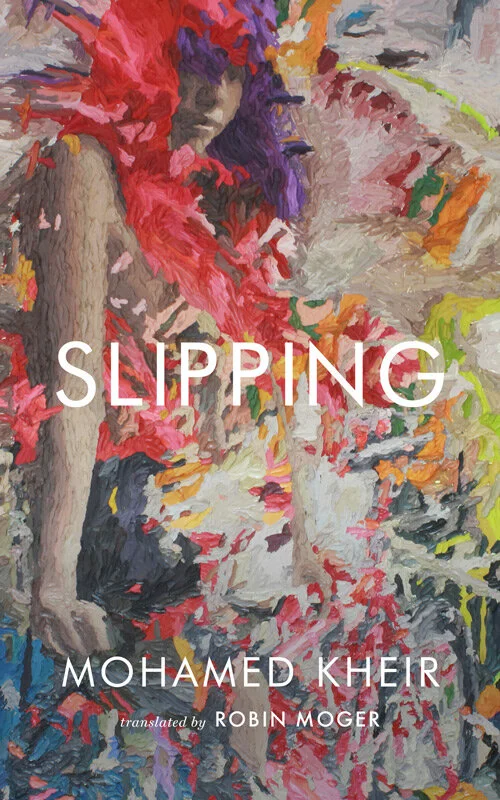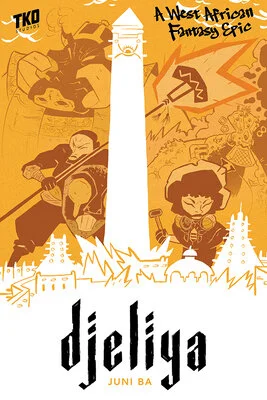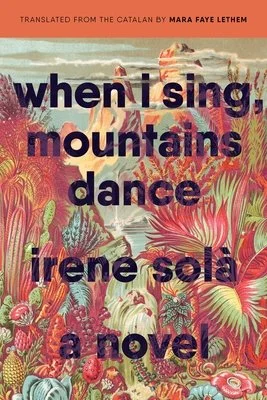Hot Off the Shelf: The Music Game by Stéphanie Clermont
[image description: The book cover of The Music Game. An abstract painting of a white woman in a dark jacket with a hood covering her hair. She’s wearing pink lipstick and the title and author are painted white in the foreground.]
Content warning: suicide, domestic violence
Disclaimer: I received a free copy of this book in exchange for an honest review. If you’d like a copy for yourself, there’s an affiliate link at the bottom of the page.
This is a spoiler-free review.
It might sound weird to say, but I’ve got a real soft spot in my heart for Canadians. I love their humor, or at least what I’ve seen of it in shows like Letterkenny and The Red Green Show. I thoroughly enjoyed my road trip a couple of years ago where I circled the Great Lakes and visited Stratford, Toronto, and Kingston. And, on the whole, I’ve never really encountered a Canadian I didn’t like.
So when a publicist reached out and asked me if I wanted to review The Music Game by Stéphanie Clermont, a novel set in Montréal and translated from French, I was all about it.
First, the synopsis:
When their friend dies by suicide in a vacant lot in Montreal's impoverished East End, three young women strike out into the world of the 2010s to define their identities, sexualities and political commitments. From the precariousness of growing up speaking French in an English-speaking city to the grind of service jobs and the elation of romantic discovery, this novel-in-stories deftly weaves together a variety of perspectives to recount the lives of three young women as they experience restless wandering, deep friendship, emotional betrayal, solidarity in the face of conjugal violence, gender transition, and anti-globalization protests. Moving from Ottawa and Montreal to California and back, The Music Game captures the experience of the millennial generation like no other novel.
A couple of things I liked right from the beginning: friendship is the central relationship in the novel and being old enough to technically classify as an adult but being young enough to need to grow up. And although it’s a difficult subject, I appreciate that suicide was tackled specifically at this age––the late teens and early twenties––because I think the proximity to suicide is particularly harrowing when your independence is newly gained, you’re still early in your foray into the adult world, and you’re thought to have endless potential and options in front of you.
More than all of that, however, the thing I appreciate most is that the friendship is real. So often I read novels where the friends are inseparable and they know every single little thing about one another, but I’ve never found that to be relatable or realistic. My best friend and I have been besties since we were 5, over 26 years now, and we’ve never been like that. Obviously, we know a lot about each other, but to say we know every single little thing wouldn’t be true.
That’s why I was so relieved to see the three friends––Céline, Julie, and Sabrina––as true to life. They come together, they drift apart, their lives get busy, two are closer to one another than the third, and so on. They’re always friends, but their friendship takes different shapes and forms over time, which I think is normal and healthy. I’ve found this is rarely captured well in fiction, especially in a novel about friendship, but Clermont does it beautifully in The Music Game.
There are chapters that are so striking––whether because they’re beautiful or because the ugly parts of life are portrayed in such a raw, real way––that I found myself re-reading them several times just to admire Clermont’s craft on the sentence level. I’d be remiss not to give a nod to JC Sutcliffe, the translator, for this too. There have been times when I’ve read a novel in translation and I’ve been keenly aware that something wasn’t quite captured right; that quite literally something was lost in translation. I never felt that way reading The Music Game.
The parts of the novel I found myself most drawn to were the ones about challenging romantic relationships and abusive relationships. Even being a writer myself and having been in an abusive relationship myself, I still struggle to write about that time in my life. Perhaps it’s different, though not necessarily easier, in fiction and I should give that a go. I found myself in awe of how easy the prose read while describing these harrowing emotional and physical experiences of abuse. These chapters are difficult emotionally, but especially masterful on a craft level.
There was so much to love about The Music Game, though a couple of things fell short for me, too. The prose describing the plot, settings, and emotions was gorgeous, but the characters themselves fell flat for me. I found it difficult to distinguish between the three main characters, as well as the many tertiary characters that enter and leave their lives. I wanted something to anchor me to each of the main characters, whether it was a distinctive personality trait, a physical characteristic that my mind could latch onto, just something.
I never got that sense and there were times that I would forget who was speaking or which character’s life I was glimpsing in a particular chapter. Maybe that’s just me. I still managed to enjoy the novel, though I would’ve liked it far more if the characters had been more dynamic.
Even more strange, I expected the music game, the game from which the novel draws its title, to be more present in the characters’ lives. I tend to think that book titles come from pivotal moments or themes in the book, but the music game is really only brought up twice and only the second time feels meaningful. I’d hoped to see more of an intersection between the game and the characters’ lives to better understand why the game itself was important to them and why the novel might take its title from that experience.
To get past that, about a third of the way into the novel I started thinking of it as linked short stories rather than a novel, and that helped me make sense of the story. The more I expected the chapters to be closely tied together, the more confused I was. But when I changed my approach and didn’t expect the story to be as streamlined, especially since the chapters are told from alternating perspectives, including first-person and third-person, things didn’t feel as scattered.
Overall, I’d prefer to have not had to do any mental gymnastics, but the individual chapters (or short stories as I came to think of them) were so stunning in their contained form that I wanted to keep reading. If you’ve been reading my blog for any amount of time, you know I only review books I really like, so while I do think there are some valid criticisms of The Music Game, on the whole, there’s a lot to love.
Part of the reason I wanted to write this review is that I think if the novel had been presented a little differently, taking into account its structure, I think The Music Game would’ve resonated with me more from the beginning. Now that you know a little more about what to expect, if you’d like a copy of The Music Game––and I hope you do––I’d appreciate it if you’d purchase using my Bookshop link below. Bookshop is an Amazon alternative that supports indie bookstores and blogs like this one.






